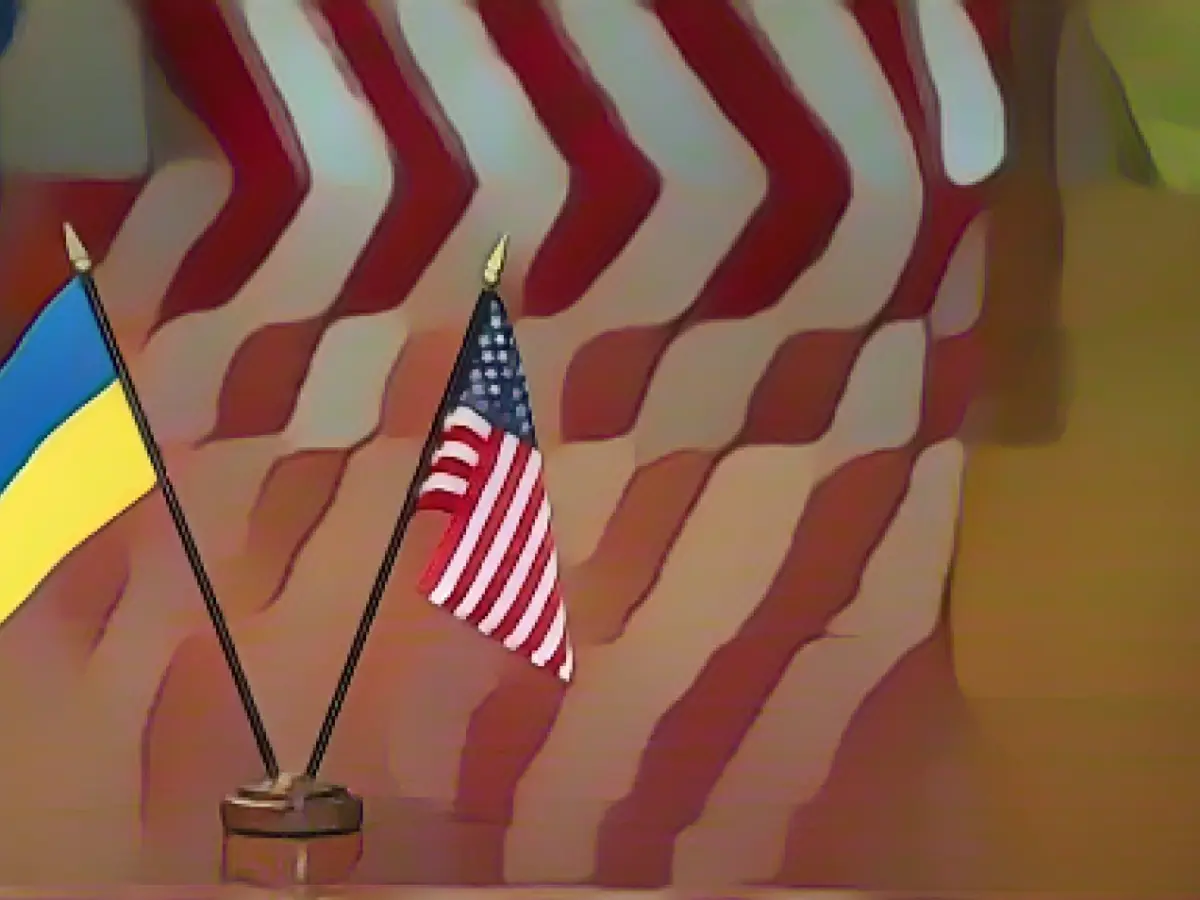The Ukrainian conflict receives a fresh influx of military support from the United States and international allies, like the G7, yet Washington's substantial financial commitments to Ukraine remain unfulfilled. President Joe Biden drives a campaign, urging Congress to endorse fresh funds for Ukraine, now bracing Russia's aggression.
Showcasing the urgency, Biden stated during his White House address that, "Congress needs to approve additional funding for Ukraine before it goes on break; it's that simple." Simultaneously, Andriy Yermak, head of the Kiev presidential office, voiced concerns about the Moscow-instigated war in Washington and stressed the critical role of American aid in averting the catastrophic prospect of halting aid altogether.
Political heavyweights from Ukraine, including Yermak, journeyed to Washington, engaging with their US counterparts to counteract this looming threat. Secretary of Defense Lloyd Austin met with Ukrainian defense counterpart Rustem Umjerow, discussing advanced defense strategies to confront the relentless Russian assaults. Ukrainian territories continued to feel the brunt of these attacks, as combat drones wreaked havoc in regions like Odessa and Khmelnytskyi.
Congressional Divide: A Dilemma for Aid to Ukraine
The US government confronts dwindling resources to manage the Ukrainian crisis. However, the impasse between Democratic and Republican factions in the US legislature jeopardizes the provision of fresh financial resources for Ukraine. Reports indicate that a substantial number of Republicans have either expressed reservations about or outright opposed supporting Ukraine.
The US Senate reached a critical breaking point on Wednesday, with the Democrats failing to gather enough support for a debate on the Ukraine aid bill's floor. With the danger of an unresolved crisis lurking, Biden reaffirmed the worldwide community's focused gaze on the urgent need for Ukraine aid as "essential to our national interest and of all our allies." He warned of the looming threat to NATO allies should Russia target them following a potential Ukrainian fall.
US Aid Package: Limited Resources, Strategic Arms
Simultaneously, the US government announced a military aid package worth up to $175 million for Ukraine. Antony Blinken, Secretary of State, revealed that the package would include weapons and equipment from previously-approved funds from the U.S. Congress.
Ukrainian President Volodymyr Zelenskyy proposed an ambitious idea: joint-armaments projects with the US. Zelenskyy advocated for the production of various weapons, vehicles, and drones to strengthen Ukraine's defenses. Notably, Ukraine has forged similar defense alliances with Poland, Germany, and other European nations.
Pressure on Russia: Beyond Military Assistance
The US allied nations vowed to limit imports of rough diamonds mined or processed within Russia, starting in 2024. This embargo aims to undermine Moscow's sources of revenue and destabilize their war treasury. Germany, in conjunction with France, Italy, Canada, the US, and the UK, introduced this punitive measure.
Putin's Ceremonial Handshake: Promises and Perils
In spite of international criticism and the escalating war of aggression against Ukraine, Russian President Putin visited oil-rich nations, such as Saudi Arabia and the United Arab Emirates. Putin responded by awarding military generals and intelligence officials with promotions, including men who had previously faced criticism for significant losses within the Russian war machine in Ukraine.
Scholars and analysts, like retired Brigadier General Klaus Wittmann from the University of Potsdam, weighed in on potential peace solutions to Russia's conflict with Ukraine. Wittmann believed that diplomacy would not yield fruit in resolving the crisis and suggested that Putin's irrational tendencies and limitless ambitions would never pave the way for a peaceful resolution.
Wittmann criticized the delayed delivery of heavy weapons from Germany, arguing it granted Russia ample time to reinforce its defensive lines. He insisted that Germany had a moral responsibility to take an active role in the crisis, objecting to the justified criticism of German inactivity.
Looking Forward: EU-China Summit and Diplomatic Dialogues
On Thursday, top diplomats from the EU and China are expected to convene, addressing international issues like the ongoing war in Ukraine. China has publicly condemned Moscow's nuclear threats yet remains an unwavering ally to Russia. The EU hopes to leverage its influence over China to impose pressure on Russia and encourage lenient measures against its diamond trade.







